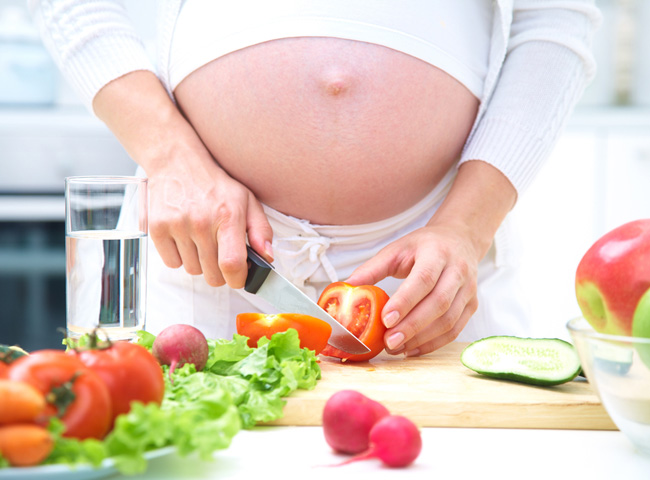The period of pregnancy is one of the most important moments in a woman”s life.
To ensure the same health and proper development of the baby should be given great attention to diet to follow. Particular attention should be paid to the initial weight of the pregnant woman and the weight gain during pregnancy, not to cause complications both for itself and for the health of the baby.
Many expectant mothers have in mind that during pregnancy should be fed for”” 2’’; consume almost twice as much food than before conception. Eating for”” 2″” does not mean that consume double quantities of food, but that we must take nutrients both for us and for our baby.
Pregnancy and Nutrition
Importance has therefore both the amount of food but the quality thereof. Pregnancy is a period in which the requirements of the pregnant woman in nutrients increase. The coverage of these requirements is not always possible through diet, so supplements are usually given by the supervising physician. Supplementation alone does not suffice, the basis of a healthy pregnancy is nutrition.

Regarding the mother”s caloric requirements are increased by 300 calories a day for the duration of pregnancy. Important is to increase the intake of protein for proper growth of the fetus. Good sources of protein intake are fish, chicken, eggs, meat and dairy products (milk, yogurt and cheese). If we receive daily variety of foods in this category, we can meet the increased requirements.
Carbohydrates are the mainstay of our diet: should be selected complex carbohydrates (i.e. whole grain bread, fruits, and vegetables) which gradually increase your blood sugar and not white bread, pasta, potatoes, to prevent the development of diabetes pregnancy. This does not preclude, but that should be consumed in moderation.
Caution is needed in the sources from which we hire fat, i.e. it should avoid taking fats from sources that offer saturated fat such as pastries, butter, red meat etc and preferred sources such as raw olive oil, fish etc. also increases the demands on iron, folic acid and calcium.
Iron is necessary for the production of hemoglobin, which carries oxygen to the embryo. Rich sources of iron are beef, eggs, green leafy vegetables, lentils etc.
It is necessary to take folic acid broth contribute to the development of the nervous system of the fetus. Foods containing this vitamin are fruits, vegetables and grains.
Calcium (found in dairy products, sesame seeds, sardines, etc.), it is necessary for the proper development of bones and teeth of the baby.
You should also consume a variety of fruits and vegetables for vitamins.
But there are some foods that should be avoided such as soft cheeses, liver and giblets, raw fish, big fish and undercooked poultry and meats.











